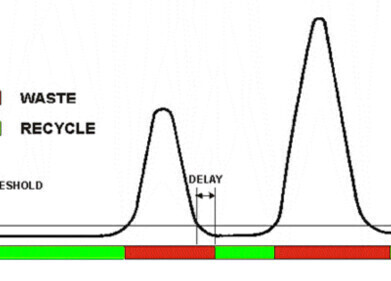HPLC, UHPLC
Is There a Biomarker for Bipolar Disorder? - Chromatography Investigates
Dec 10 2019
Bipolar disorder is a mental illness that affects the moods of sufferers causing them to swing from extreme highs to depressive lows. People suffering from bipolar disorder have a high risk of continuing episodes of what are termed manic and depressive episodes. They also have an elevated risk of suicide and there is a chance of heritability of 60-80%.
It is reported in a recent paper that there has been a lack of systematic research into the underlying neurobiology as the illness progresses. A recent paper published in the journal Translational Psychiatry reports on how one team has used chromatography to investigate potential biomarkers for the illness and reports on how RNA damage might be a potential biomarker for bipolar disorder.
More than just mood swings
Many people have mood swings - anyone with a teenager in the house knows how hormone changes affect a person’s mood. But bipolar disorder is much more than the excitement or sullenness of a teenager with acne. People suffering from bipolar disorder suffer from extreme episodes of depression or mania that can last for several weeks or longer.
The extremes of bipolar disorder can affect the everyday life of sufferers - and approximately 1 in 100 people will be diagnosed with bipolar disorder at some point in their life. It often develops during the teenage years, particularly between 15 and 19. The pattern if episodes vary widely between people. The cause of bipolar disorder is unknown - although stress and genetic factors are thought to play a role.
Oxidative stress marker reveals itself to UHPLC
Research has previously suggested that elevated levels of oxidative stress markers are seen in some psychiatric disorders. Oxidative stress shows when there is an increase in certain oxidants which can lead to oxidative changes of cellular components - including DNA and RNA. One marker known as 8-oxo-7,8-dihydroguanosine (8-oxoGuo) is a marker for RNA oxidation and can be analysed in cerebrospinal fluid and urine using ultra-performance liquid-chromatography-mass spectrometry. Advances in the use of chromatography with mass spectrometry are discussed in the article, Recent Advances to Conquer Analytical Challenges with High-Resolution, Accurate Mass Spectrometry.
In the article referenced above, a team of researchers from Denmark analysed patients with bipolar disorder and healthy controls for levels of 8-oxoGuo and other markers using UHPLC-MS. The team found significantly raised levels of the marker in bipolar disorder patients than in the healthy controls and that the levels increased after episodes. They suggest that RNA damage might be a potential biomarker for bipolar disorder and that effective long-term preventive treatment may contribute to normalized life expectancy in BD
Digital Edition
Chromatography Today - Buyers' Guide 2022
October 2023
In This Edition Modern & Practical Applications - Accelerating ADC Development with Mass Spectrometry - Implementing High-Resolution Ion Mobility into Peptide Mapping Workflows Chromatogr...
View all digital editions
Events
Apr 23 2024 Kintex, South Korea
Apr 23 2024 Seoul, South Korea
Apr 28 2024 Montreal, Quebec, Canada
May 05 2024 Seville, Spain
May 15 2024 Birmingham, UK














